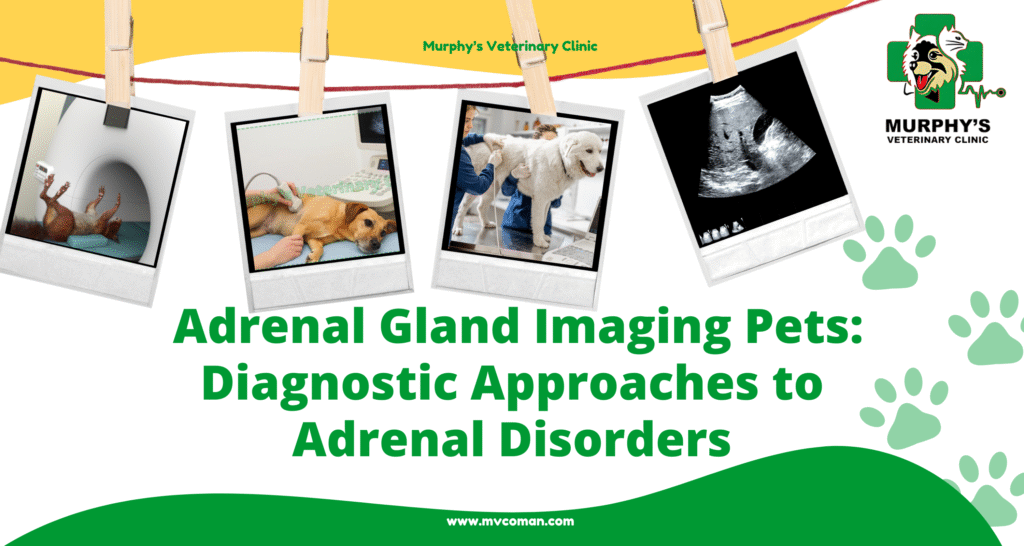Diseases & Treatments, Emergency & First Aid, Health & General Care, Special Care, Veterinary Science & Advances
Adrenal Gland Imaging Pets: Diagnostic Approaches to Adrenal Disorders
Topics covered in this article:
Adrenal Gland Imaging Pets plays a vital role in accurate diagnosis and effective treatment. These small glands are crucial for hormone regulation, and any abnormality may lead to serious health issues in pets. To evaluate the adrenal glands, various imaging techniques such as abdominal ultrasound, CT scan, MRI, and contrast imaging are used. Each method provides unique insights and often complements the others. The right choice depends on the pet’s condition and clinical goals. In modern veterinary clinics, these advanced methods are part of standard care. Adrenal Gland Imaging Pets is no longer optional—it’s the core of proper diagnosis.
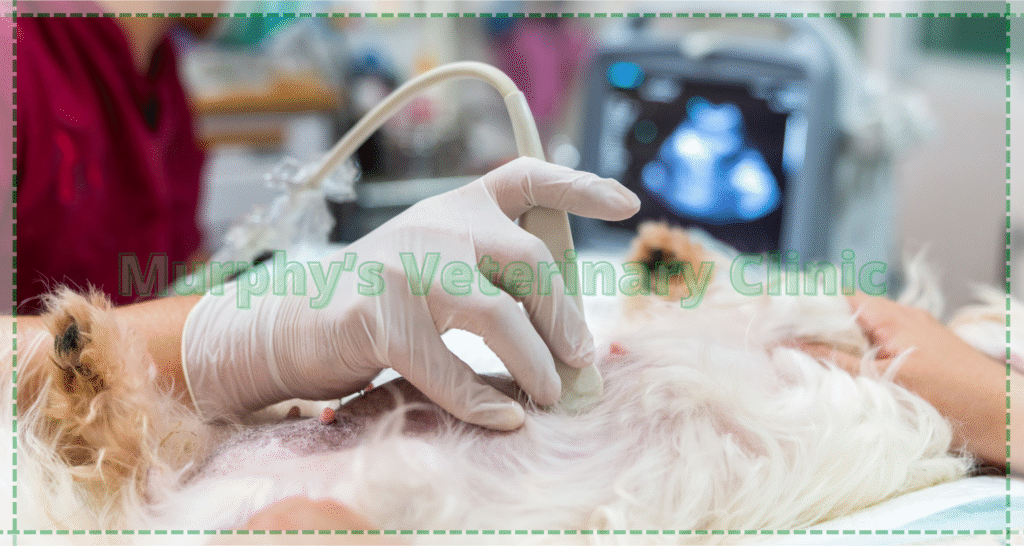
Abdominal Ultrasound
Abdominal ultrasound is usually the first choice in Adrenal Gland Imaging Pets due to its non-invasive nature, affordability, and real-time results. It helps evaluate adrenal size, shape, and positioning and can detect early abnormalities. It’s especially useful for fragile or elderly pets since it doesn’t require anesthesia. While it provides limited internal detail, it can still suggest inflammation, atrophy, or enlargement.
- Safe for initial screening
- Ideal for unstable pets
- Real-time gland visualization
- Guides needle biopsies
- Widely available in clinics
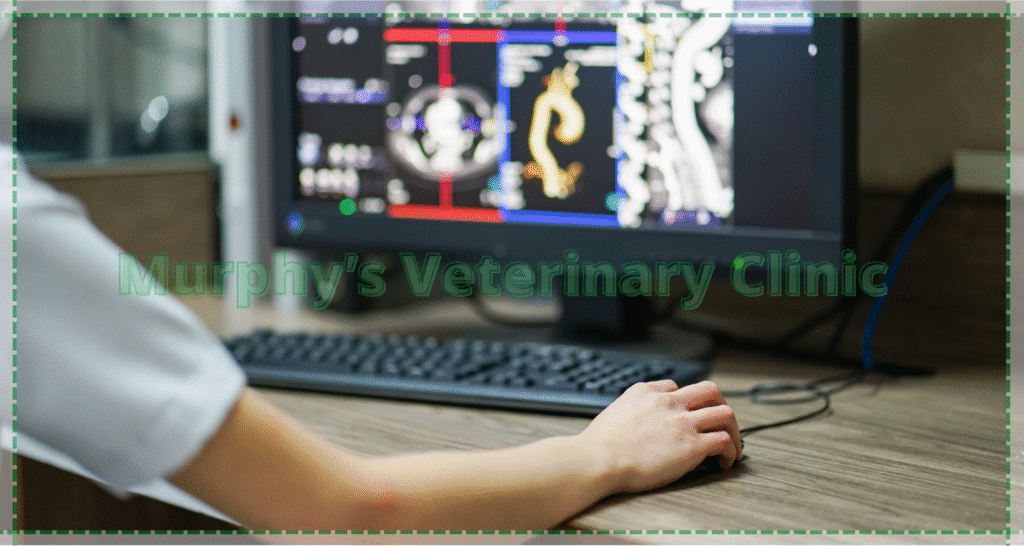
CT Scan
In Adrenal Gland Imaging Pets, CT scans offer high-precision cross-sectional views of the glands and nearby structures. It helps locate even small or deep-seated tumors and provides data on their impact on adjacent tissues and blood vessels. CT is essential when planning surgery, and it becomes even more powerful when combined with contrast agents.
- Detailed 3D mapping of adrenal masses
- Identifies tumor extent
- Differentiates benign vs. malignant lesions
- Pre-operative planning support
- Excellent for complex diagnoses
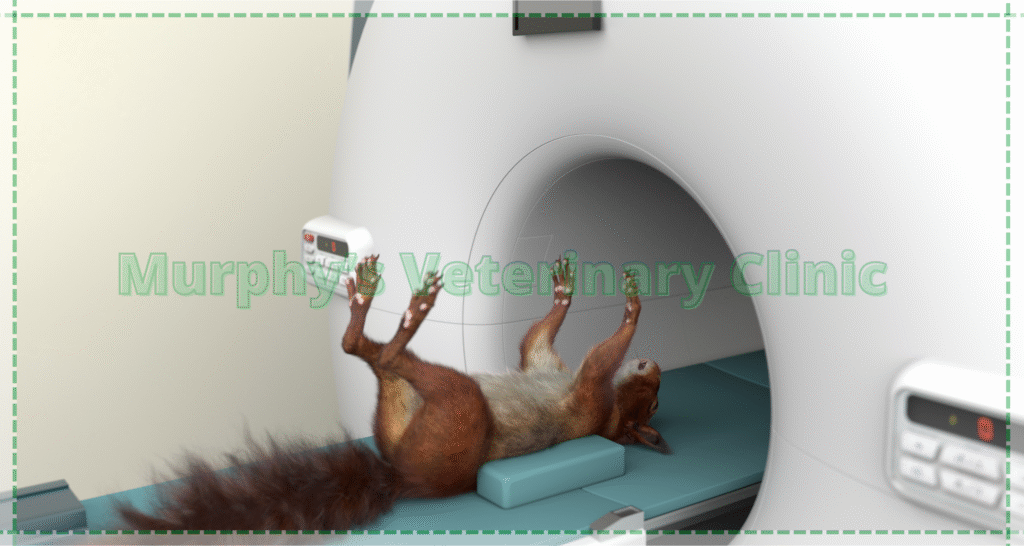
MRI
MRI is invaluable in Adrenal Gland Imaging Pets, especially when neurological involvement is suspected. It offers unparalleled contrast resolution and helps assess if a tumor has spread to the spine or brain. MRI does not use radiation, making it safer for long-term monitoring but is more costly and time-intensive.
- Best for nerve or brain-related cases
- Highly accurate in soft tissue imaging
- No exposure to radiation
- Detects micro-lesions
- Often used in complex endocrinology cases
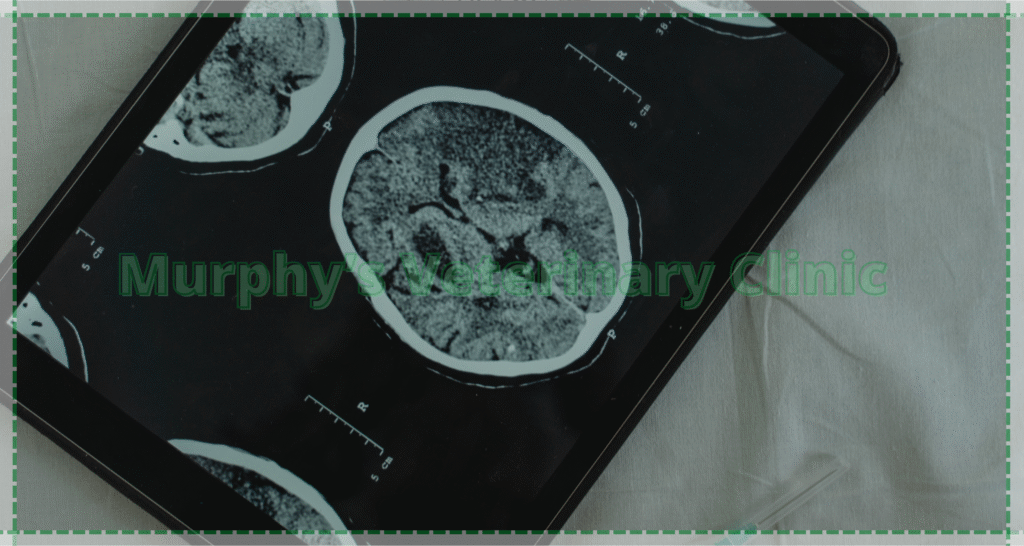
Contrast Imaging
Contrast imaging helps evaluate adrenal blood flow and functional behavior in Adrenal Gland Imaging Pets. By injecting contrast agents, vets can analyze how quickly the gland absorbs and releases the agent—helping to identify tumors or dysfunctions. This technique is often paired with CT or MRI.
Key Parameters in Contrast Imaging
| Parameter | Diagnostic Value |
| Fast contrast uptake | Highly vascular adrenal tumors |
| Slow washout | Suggests dysfunction or non-functional masses |
| Side comparison | Detects unilateral or bilateral issues |
| Dynamic flow mapping | Visualizes real-time gland activity |
| Add-on to CT/MRI | Provides structural and functional detail together |
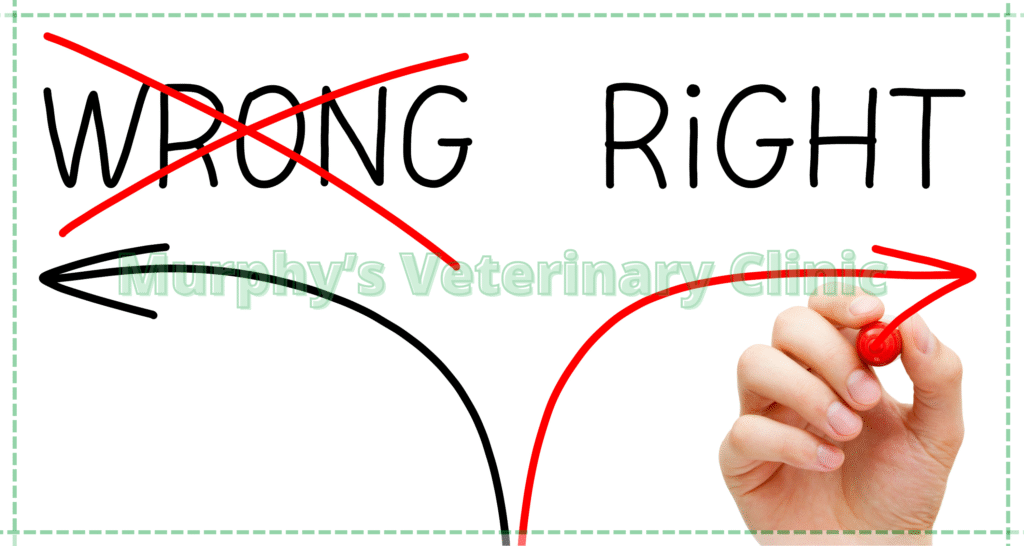
Choosing the Right Imaging Method
Each pet’s case is unique, and the right method of Adrenal Gland Imaging Pets depends on symptoms, urgency, and diagnostic objectives. While ultrasound is common for first-line evaluation, advanced imaging offers higher clarity and more functional insights. Often, combining two methods yields optimal results.
Comparison Table of Imaging Methods
| Method | Accuracy | Best Use Case | Pros | Limitations |
| Ultrasound | Moderate | Initial scan | Quick, affordable | Limited structural detail |
| CT Scan | High | Tumor detection | Precise, detailed | Requires sedation |
| MRI | Very High | Brain/spinal involvement | Superior soft tissue view | Costly, time-consuming |
| Contrast Imaging | High | Functional adrenal analysis | Dynamic, informative | Requires IV injection |
Conclusion
Adrenal Gland Imaging Pets is an essential component of veterinary diagnostics. From detecting tumors to assessing hormonal imbalances, the right imaging tools lead to faster, more reliable treatments. As veterinary care evolves, so does the importance of imaging technologies. Pet owners should work closely with their vets to ensure the best diagnostic approach is used. Leveraging modern imaging improves health outcomes and prevents irreversible glandular damage.
Murphy’s Veterinary Clinic specializes in Adrenal Gland Imaging Pets, offering state-of-the-art services With a dedicated and experienced veterinary team, Murphy’s ensures thorough image interpretation and follow-up care. If your pet shows signs of adrenal issues, don’t wait—trust Murphy’s to deliver precise, compassionate diagnostics.


